
-
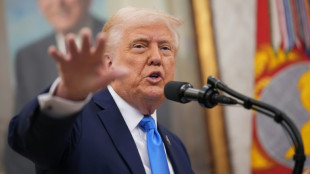 Asian markets edge up but uncertainty rules ahead of Trump tariffs
Asian markets edge up but uncertainty rules ahead of Trump tariffs
-
Nintendo's megahit Switch console: what to know

-
 Nintendo to unveil upgrade to best-selling Switch console
Nintendo to unveil upgrade to best-selling Switch console
-
China practises hitting key ports, energy sites in Taiwan drills

-
 Oil, sand and speed: Saudi gearheads take on towering dunes
Oil, sand and speed: Saudi gearheads take on towering dunes
-
All eyes on Tsunoda at Japan GP after ruthless Red Bull move

-
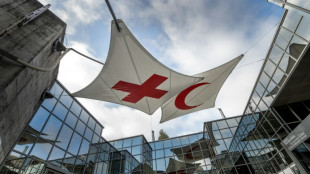 'Image whisperers' bring vision to the blind at Red Cross museum
'Image whisperers' bring vision to the blind at Red Cross museum
-
Hay shines as New Zealand make 292-8 in Pakistan ODI
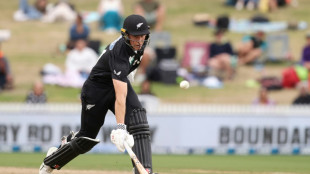
-
 Other governments 'weaponising' Trump language to attack NGOs: rights groups
Other governments 'weaponising' Trump language to attack NGOs: rights groups
-
UK imposes online entry permit on European visitors

-
 How a Brazilian chief is staving off Amazon destruction
How a Brazilian chief is staving off Amazon destruction
-
Meme politics: White House embraces aggressive alt-right online culture

-
 China launches military drills in Taiwan Strait
China launches military drills in Taiwan Strait
-
US senator smashes record with 25-hour anti-Trump speech

-
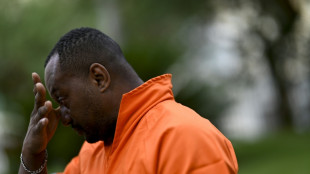 Brazil binman finds newborn baby on garbage route
Brazil binman finds newborn baby on garbage route
-
US senator smashes record with marathon anti-Trump speech
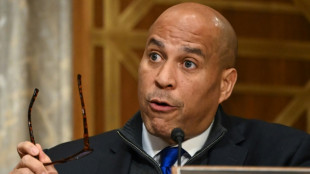
-
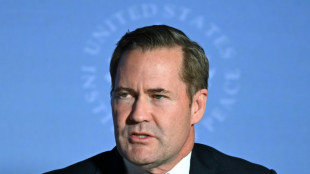 Trump advisor Waltz faces new pressure over Gmail usage
Trump advisor Waltz faces new pressure over Gmail usage
-
Niger junta frees ministers of overthrown government

-
 Trump set to unleash 'Liberation Day' tariffs
Trump set to unleash 'Liberation Day' tariffs
-
Boeing chief to acknowledge 'serious missteps' at US Senate hearing

-
 Real Madrid hold Real Sociedad in eight-goal thriller to reach Copa del Rey final
Real Madrid hold Real Sociedad in eight-goal thriller to reach Copa del Rey final
-
Nuno salutes 'special' Elanga after stunning strike fires Forest

-
 PSG survive scare against Dunkerque to reach French Cup final
PSG survive scare against Dunkerque to reach French Cup final
-
Sundowns edge Esperance as crowd violence mars quarter-final

-
 Nottingham Forest beat Man Utd, Saka scores on Arsenal return
Nottingham Forest beat Man Utd, Saka scores on Arsenal return
-
Elanga wonder-goal sinks Man Utd as Forest eye Champions League berth

-
 Stock markets mostly advance ahead of Trump tariffs deadline
Stock markets mostly advance ahead of Trump tariffs deadline
-
US movie theaters urge 45-day 'baseline' before films hit streaming

-
 Saka scores on return as Arsenal beat Fulham
Saka scores on return as Arsenal beat Fulham
-
Third-division Bielefeld shock holders Leverkusen in German Cup

-
 Ball-blasting 'Torpedo bats' making waves across MLB opening weekend
Ball-blasting 'Torpedo bats' making waves across MLB opening weekend
-
Newsmax shares surge more than 2,000% in days after IPO

-
 Thousands of Hungarians protest against Pride ban law
Thousands of Hungarians protest against Pride ban law
-
GM leads first quarter US auto sales as tariffs loom

-
 Tesla sales tumble in Europe in the first quarter
Tesla sales tumble in Europe in the first quarter
-
No 'eye for an eye' approach to US tariffs: Mexico

-
 NFL club owners back dynamic kickoffs, delay tush push vote
NFL club owners back dynamic kickoffs, delay tush push vote
-
Trump 'perfecting' new tariffs as nervous world braces
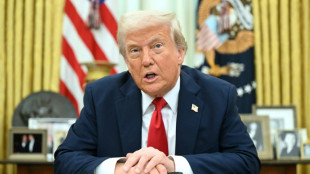
-
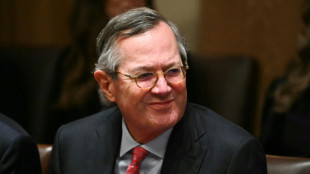 Trump nominee says to press UK on Israel arms
Trump nominee says to press UK on Israel arms
-
French court says Le Pen appeal ruling could come before presidential vote

-
 The battle to control assets behind Bosnia crisis
The battle to control assets behind Bosnia crisis
-
Prabhsimran powers Punjab to IPL win over Lucknow

-
 Mass layoffs targeting 10,000 jobs hit US health agencies
Mass layoffs targeting 10,000 jobs hit US health agencies
-
Tiger's April Foolishness: plan to play Masters just a joke
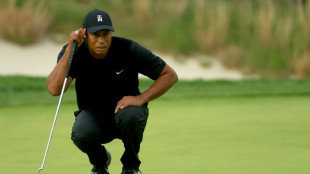
-
 Myanmar quake toll passes 2,700, nation halts to honour victims
Myanmar quake toll passes 2,700, nation halts to honour victims
-
Turkish fans, artists urge Muse to cancel Istanbul gig

-
 US seeks death penalty for accused killer of insurance CEO
US seeks death penalty for accused killer of insurance CEO
-
UK govt moves to block sentencing guidelines for minority defendants

-
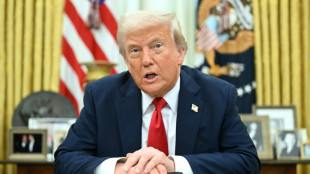 Trump puts world on edge as 'Liberation Day' tariffs loom
Trump puts world on edge as 'Liberation Day' tariffs loom
-
Swedish journalist jailed in Turkey kept 'isolated': employer


Malaria mortality returns to pre-Covid levels: WHO
Malaria mortality has fallen back to levels seen before the Covid-19 crisis, the WHO said Wednesday, but called for faster progress against the disease that killed nearly some 597,000 people last year.
In a new report, the World Health Organization estimated that there were 263 million cases of malaria worldwide in 2023 -- 11 million more than a year earlier -- while the death toll remained relatively stable.
But in terms of the mortality rate, "we have come back to pre-pandemic numbers", Arnaud Le Menach, of the WHO's Global Malaria Programme, told reporters.
In 2020, disruptions caused by the Covid-19 pandemic led to a sharp increase in malaria-related mortality, with an additional 55,000 deaths counted that year.
Since then the total number of deaths from malaria, which is caused by a mosquito-borne parasite, has gradually shrunk, as has the mortality rate.
The estimated 2023 mortality rate in Africa of 52.4 deaths per 100,000 population at risk meanwhile still remains more than double the target level set by a global strategy for combatting malaria through 2030, WHO said, insisting "progress must be accelerated".
- Vaccine promise -
WHO pointed to the wider rollout of malaria vaccines as a promising development, expected to save tens of thousands of young lives each year.
The two jabs currently in use, RTS,S and R21/Matrix-M, hold the promise of significantly easing the burden in Africa, which accounts for up to 95 percent of all malaria deaths.
Malaria vaccines were first introduced in April 2019, first in Malawi, with Kenya and Ghana following suit.
Through the end of 2023, nearly two million children in those three countries received jabs of the RTS,S vaccine, WHO said.
"We saw in those three pilot countries... a 13-percent drop in mortality during the four years of the pilot programme," said Mary Hamel, who heads WHO's malaria vaccine team.
The WHO now looked forward to seeing a similar drop in other countries introducing the vaccines, she told reporters, pointing out that countries that began introducing the jabs early this year were "following a similar trajectory".
So far, 17 nations across sub-Saharan Africa have included the jabs in their routine immunisation programmes, she said
Another eight countries had been approved to receive funding towards introducing the vaccines through the vaccine alliance GAVI, WHO said.
- 'Curb the threat' -
In another promising development, new-generation dual-insecticide nets nets are becoming more widely available.
These nets, which are coated in a new generation pyrrole insecticide in combination with the standard pyrethroid insecticide, have been shown to offer far better protection against malaria.
The WHO estimated earlier this year that such nets had averted 13 million malaria cases and nearly 25,000 deaths over three years.
Despite the successes, the WHO highlighted a number of factors slowing the battle against malaria, including a lack of funds and insufficient stocks of vaccines, as well as climate change, which is allowing a greater spread of the mosquitos that carry the parasite that causes malaria.
"Stepped-up investments and action in high-burden African countries are needed to curb the threat," WHO chief Tedros Adhanom Ghebreyesus said in a statement.
The Global Fund, a partnership set up to battle AIDS, tuberculosis and malaria, agreed.
"Progress has stagnated for several years," its executive director Peter Sands warned in a statement.
"To overcome this, we must accelerate our efforts through a dual approach: investing in new technologies while simultaneously easing the strain that climate change places on healthcare systems," he said.
Th.Berger--AMWN

